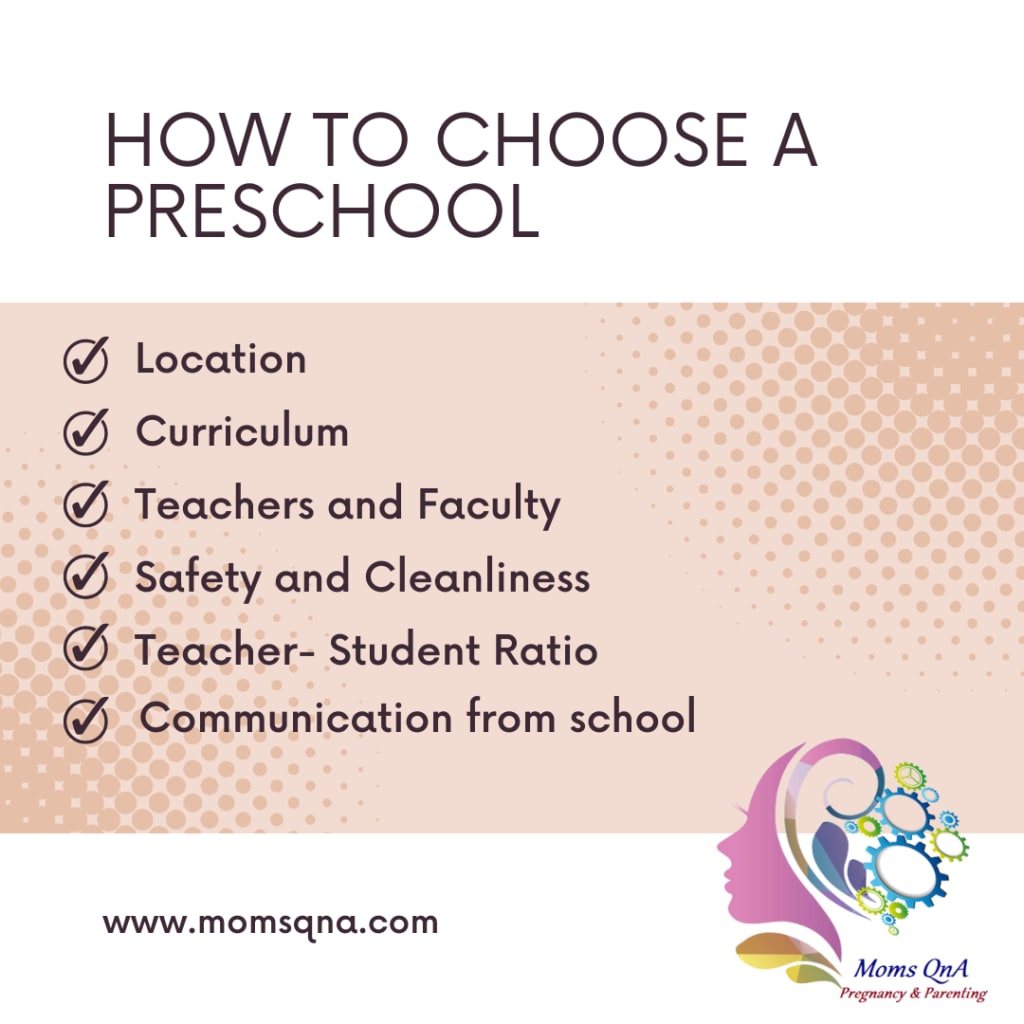How to Choose a Preschool for Your Child
While there are still debates and discussions on “Is pre-schooling necessary”, most parents from Indian cities choose to admit their child into a play school once the child turns 2 or 3 years of age. One main reason for this culture is that Indian families are no more big and joint with uncles, aunts, cousins and grandparents living in the same house, where the children had many opportunities to learn and build on their social skills.

While there are still debates and discussions on “Is pre-schooling necessary”, most parents from Indian cities choose to admit their child into a play school once the child turns 2 or 3 years of age. One main reason for this culture is that Indian families are no more big and joint with uncles, aunts, cousins and grandparents living in the same house, where the children had many opportunities to learn and build on their social skills.
Hence, there arises a need to let the child socialize, play, and learn in a safe environment, with other children and under the supervision of adults.
Why is it important to pre-school the child?
read more....
Pre-school-learning from 3-5 or 6 years of age. Montessori learning starts as early as 2. This period in a child’s life is very important in terms of development of reasoning, personality, and behavior. Various studies have shown that the early years of proper learning have improved all the mentioned three qualities in children. The proper channeling of these years of children, in many chances, help children to do well in their higher education, and also grew as skilled and well behaved individuals.
Let us not forget the older generation growing up in a large household, amidst a lot of adults and children. Learning and disciplining happened on its own.
Advantages of Montessori Education
How to choose a pre-school?
1.Location
Go for something nearer to where you live. Let the search for a playschool begin with looking for a good center closer to your place. Mainly because, it is inhuman to put the child into the turmoil of travelling too long.
2.Curriculum
There are many pre-school franchises which follow norms and standards for their curriculum. Montessori, Waldorf and Playway are some of the popular pre-school curriculums in India, with Montessori being the most known.
It need not be a well-known curriculum or a particular curriculum. Just make sure if the teaching methodology is engaging and suits your child’s nature of learning. Do have a proper glance at the topics taught and how are they taught and set of toys or equipment that allow physical activity indoor or outdoor or both.
Also, it is very important the preschool hours in a day, typically has a play time and a socializing activity.
Advantages of Mixed Age Classrooms
3.Teacher – Student Ratio
Low Teacher – Student ratio is always better. Typically, most quality pre-schools have two teachers per classroom of 20-25 students. If not, two teachers, at least a teacher and a caretaker (nanny) is also a good option.
4. Safety and Cleanliness
Most pre-schools do not have more than 100 children maximum. Pre-schools need not be big or lavish. It should be safe, both in terms of equipment and play sets used for learning and playing as well as in terms of cleanliness and hygiene.
No sharp-ended furniture, well lit and ventilated, safe staircases, grilled doors and windows, no exit and entrance that is accessible by kids, anti-slippery mats etc., are some of the things to be noted.
5. Teachers and Faculty
Teachers should have proper after high school education. That is important. That apart, the bigger important factor to consider is positive teaching and disciplining, as early childhood learning starts with trusted relationships.
Being good spirited comes from being positive and caring. That is exactly the teachers at playschools should be. The teacher should be willingly ready to feed the child’s curiosity. Also, the children being in their budding years of building discipline and social skills, they need to be positively and patiently dealt with, and so, no punishments.
Anger, shouting, bored responses, etc negative interactions are a big no-no.
6. Communication from School
There should be regular communication from school, time to time. It should be transparent too. Check with the school, about how and how often they communicate the updates about the child and other things needed.
Ideas of Routines for Children
Potty Training:
Apart from these basics, some play schools help in potty training for children. It is not a mandatory thing to look for, as potty training can eventually happen at home and by the mom herself, but a good option to consider when you are looking for a playschool nearby for your child. In this case, please ensure that this is a not false promise, and that the school has the infrastructure and staff to support the child, because kindness, tolerance and patience are very important here.
Play school isn’t a place where the child becomes a champion or wins a race or reach milestones. It is and should be a safe abode where he starts his learning a language and numbers and develops his social skills. What, how and how much he learns shouldn’t be the goals.
About the Creator
moms
pregnancy and parenting , childcare






Comments
There are no comments for this story
Be the first to respond and start the conversation.